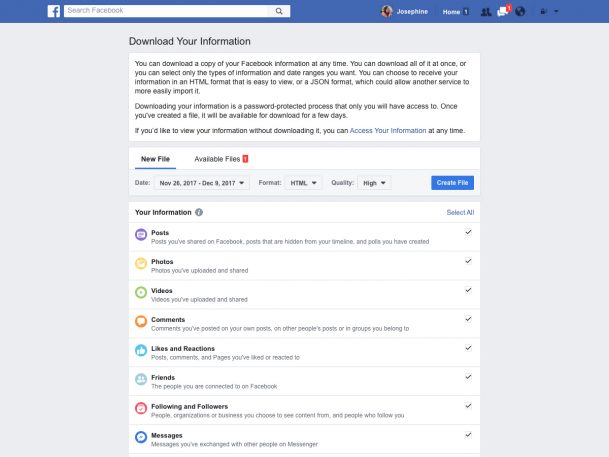This morning, Facebook responded to the ongoing Cambridge Analytica scandal by announcing a series of changes to its privacy settings—essentially making it easier for users to find them, control what they share, and download and delete their data. The company—which came under fire for not doing more sooner to protect the data and for its initial response to the revelations—also committed to changing its terms of service in a way that adds more transparency to its data policy, without giving itself new rights to user’s data.
“The last week showed how much more work we need to do to enforce our policies, and to help people understand how Facebook works and the choices they have over their data,” Erin Egan, vice president and chief privacy officer for policy, and Ashlie Beringer, vice president and deputy general counsel, wrote in a blog post. “We’ve heard loud and clear that privacy settings and other important tools are hard to find, and that we must do more to keep people informed.”
Facebook last implemented changes to its privacy controls and settings in January, when it published for the first time its privacy principles, and shortly afterward launched what it calls Privacy Center, a one-stop shop for controlling privacy settings.
The previous changes were made in advance of Europe’s General Data Protection Regulation, which begins May 28, and requires tech companies operating in the EU to get “unambiguous” consent from users before collecting their data, give those users easy methods for opting out of consent, and give them the right to deny companies using their data for targeting marketing. GDPR also grants users the right to get their data from companies like Facebook. Violations of the new system come with hefty fines, up to 4% of annual turnover.
But clearly those changes were not nearly enough to calm the post-CA churning waters.

It’s been a very tough 11 days for Facebook since the scandal broke. In the wake of news that at least 50 million users’ data made their way to Cambridge Analytica, which in turn leveraged the information to help Donald Trump win the 2016 presidential election, Facebook’s stock has been hammered. As of this writing, it’s down 17.7%, shredding tens of billions in market cap and losing more than double what it had gained during the year so far.
In the meantime, regulators and lawmakers are swirling, lawsuits have been filed, and a burgeoning #DeleteFacebook campaign has taken hold. And everyone noticed that it took days before executives like CEO Mark Zuckerberg or COO Sheryl Sandberg publicly addressed the controversy. All of this has clearly led to frustration in Menlo Park, home to the company’s headquarters. If you looked closely during his CNN interview last week, Zuckerberg looked very tired.
